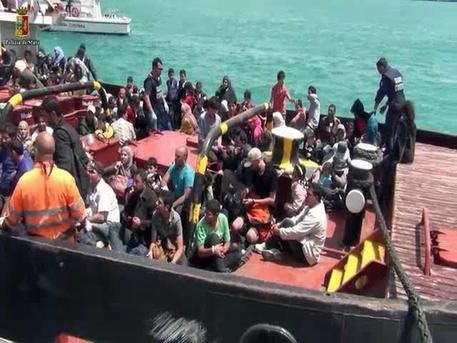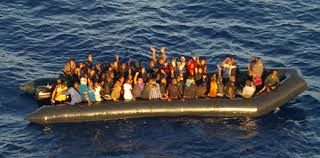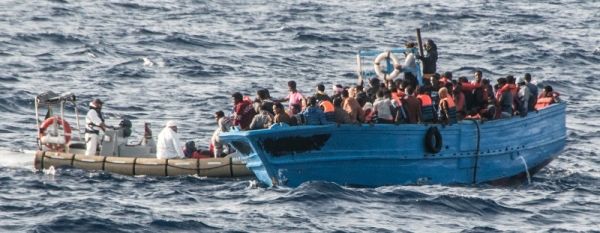Thousands of illegal immigrants saved in Italian waters
Sicily copes with new influx of immigrants
Over 1,500 illegal immigrants were saved by the Italian air and naval forces from drowning in the Mediterranean in the second week in September, with several hundred more brought safely to Sicily over the weekend.
It is no longer just the island of Lampedusa, much publicised by the visit of Pope Francis in 2013, but Messina, Ragusa, Palermo, and lesser known towns such as Pozzallo, Porto Empedocle and Trapani that are now struggling with either the funerals of the victims or the arrival of men, women and children from all parts of Africa and the Middle East. The forces of law and order throughout the island are also overstretched as they cope with the capture and arrest of the illegal traffickers where possible.
Last week Catania police arrested four scafisti, as the pilots of the boats are called – two from Nigeria, one from Gambia and one from Ghana – and in Ragusa four Egyptians were arrested.
The saving of illegal immigrants in distress is part of the government's Mare Nostrum policy. However it is being hotly contested by opposition parties on the grounds that it is adding to the increase in illegal immigration into Italy as well as to the hardship of those involved – the argument being that traffickers are now setting off in even more precarious conditions than previously, knowing that their tragic human cargoes will be rescued by Italian life boats or planes.
According to figures from the United Nations High Commission for Refugees (UNHCR) the deaths so far this year in the Mediterranean total 1,880, compared with about 600 last year. The same report indicates that there have been 124,380 arrivals along the southern shores of the Mediterranean in 2014, compared with 60,000 for the whole of 2013.
According to the Italian offices of UNHCR over 50 per cent of those who arrive in Italy (of which 100,000 have come by sea in 2014) are fleeing war, violence and persecution. Most of these are from Eritrea (29 per cent) and Syria (18 per cent).
The most recent report from Frontex, the European Union agency that helps to coordinate the management of the national borders of member states, also indicates the speed at which illegal immigration across the Mediterranean into Italy has increased this year.
























